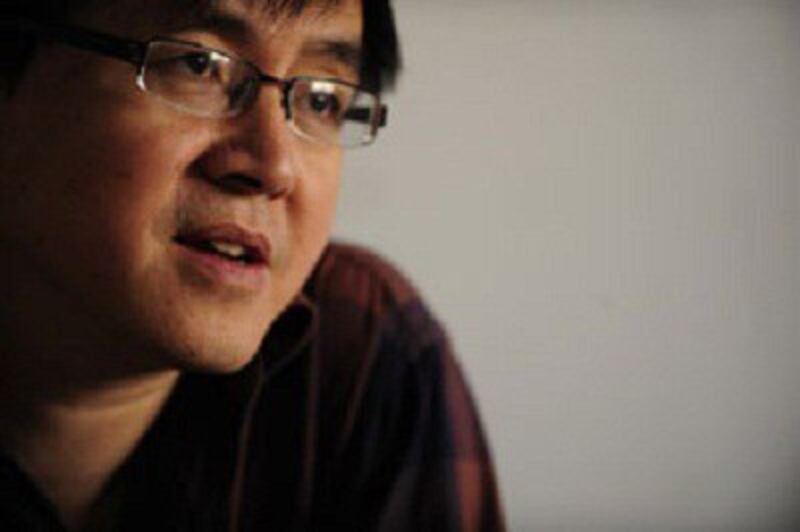Human rights and press freedom are crucial if China is to achieve its stated AIDS prevention goals, particularly when it comes to safeguarding women and children, a leading AIDS specialist has said.
According to U.S.-based dissident doctor Wan Yanhai, AIDS prevention is intimately bound up with human rights and the empowerment of women, and China is no exception.
"During the late 1990s, a large number of women became infected with HIV through blood transfusions, and then passed the virus on to their unborn children, particularly in central China's Henan province," Wan said in a commentary broadcast on RFA's Cantonese Service on Monday.
Wan accused Beijing of deliberately obscuring the truth about the extent to which AIDS is transmitted through tainted blood transfusion and donation clinics in poorer areas of the country.
"They don't take the initiative to tell people of the dangers of HIV infection through blood donation or blood transfusions, which leads to a situation in which a lot of women are infected but do not know it, and pass [HIV] onto their children," he said.
"At the same time, a lot of men are infected without knowing it, and pass the virus on to their wives, and she to the children ... resulting in countless tragedies," Wan said.
Rampant discrimination
He said the government's stated aim to achieve zero mother-to-infant infections is hampered by rampant discrimination against those who are found to be HIV positive in rural areas, where there is a widespread lack of education about transmission through blood transfusions.

"If a pregnant woman is found in the hospital to be infected with HIV, they could be subjected to serious victimization and social discrimination once the news gets out into the community," Wan said.
"The infected person can be evicted from their home or expelled from their village, while the pressure will rise on the woman to have an abortion," he said.
Such mothers, even if they do elect to give birth, will then be transferred to infectious diseases hospitals to have their baby, who will then carry this stigma on their record through school and into the labor market, regardless of their HIV status.
Goal of zero mother-to-child transmissions
Wan said that while the United Nations-backed targets of zero new infections, zero discrimination, and zero AIDS-related deaths are still a long way off for many governments, the target of zero mother-to-child transmissions set by the State Council in 2010 as part of the 12th Five Year Plan should be achievable for China.
But any prevention measures should take human rights protection as their cornerstone, he warned.
"The Chinese government's efforts to prevent mother-to-child transmission of HIV need to be established on the basis of the protection of the rights of women and children," Wan said.
"Humans, unlike animals, have complicated social and economic relationships," Wan said.
Control and surveillance
The government view of people living with HIV as legitimate targets for the nationwide "stability maintenance" surveillance system is a serious barrier to prevention work, he added.
"Policies towards AIDS patients and those living with HIV often take the attitude of control and surveillance, while widespread stigma and poverty hamper the effectiveness of prevention efforts in the area of mother-to-child transmission," Wan said.
Wan also cited widespread discrimination against the population of migrant workers in the provision of medical treatment and assistance for women and children, and a lack of equal access to medications, medical treatment, and social welfare payments, compared to men.
"The rights of children born to couples who are not married must also be taken into account through the provision of household registration documents, free medical treatment, and child welfare payments," he said.
Blood-selling schemes
Activists estimate that at least 100,000 people in Henan alone have been infected with HIV through the blood-selling schemes run by local governments, which bought blood donations from impoverished rural residents, but also took a cut of the proceeds.
Collectors paid villagers to give their blood, pooled it without testing for HIV or any other infections, extracted the valuable plasma, and then re-injected the blood back into those who sold it.
Around 40,000 of them have now died of AIDS, leaving around 60,000 still living with HIV.
Under government measures announced in 2009, orphans whose parents have both died of AIDS should receive 600 yuan (U.S. $96) in subsidies every month, while single parent families with one parent lost to AIDS would get 200 yuan (U.S. $32) a month.
Many of those infected by tainted blood transfusions linked to blood-selling schemes or by mother-to-baby transmission have tried unsuccessfully to sue local authorities for failing to deliver promised treatment packages and adequate compensation, however.
Last August, hundreds of AIDS patients tore down the gates of the Henan provincial government buildings in a bid to get officials to take heed of their demands.
Reported by RFA's Cantonese Service. Translated and written in English by Luisetta Mudie.
